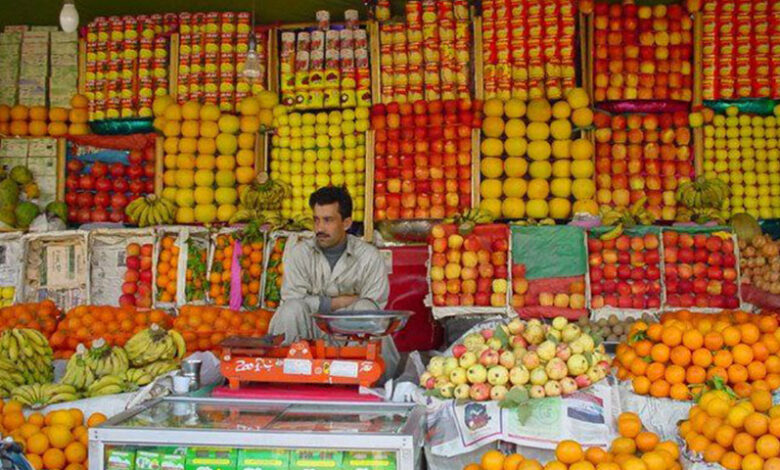Prices of Essential Food Items Surge Ahead of Ramadan in Pakistan

As the month of Ramadan approaches, the prices of fruits, vegetables, pulses, and other essential food items in Pakistan have witnessed a significant increase, becoming a routine occurrence. Many essential commodities have moved beyond the reach of the common man, while the government has set up price control teams, claiming that prices are under control.
**Price Increase in Essential Goods:**
A recent survey by **V News** examined the price changes in food items during Ramadan to understand the extent of the price hike and the government’s success in controlling them. The government has managed to control the prices of several essential items, particularly in the vegetable and fruit markets, where price hikes have been moderate. However, the government has failed to control the price of sugar, with a significant increase of up to 40 rupees per kilogram.
**Sugar Prices:**
The government’s failure to regulate sugar prices has become evident as the price of sugar has surged during Ramadan. Just before the start of Ramadan, the price of sugar per kilogram was 140 rupees, which rose to 160 rupees per kilogram at the beginning of Ramadan. By the last ten days of the month, the price reached 180 rupees per kilogram. Shopkeepers have even warned that the price could rise to 200 rupees per kilogram. However, after government intervention, the price has remained at 180 rupees, with claims that it will reduce to 165 rupees per kilogram in the coming days.
**Eggs and Chicken Prices:**
Egg prices have seen a notable increase, with a dozen eggs priced at 270 rupees in February. The price further rose by 30 rupees, reaching 300 rupees per dozen during Ramadan. Similarly, the price of live broiler chicken was 462 rupees per kilogram before Ramadan, and it increased by 25 to 30 rupees, reaching 490 to 495 rupees per kilogram during Ramadan.
**Cooking Oil and Ghee:**
The prices of cooking oil and ghee saw a 300-rupee increase in the price of a 16-liter carton before Ramadan, but these prices remained steady throughout the month of Ramadan.
**Flour Prices:**
The price of a 20-kilogram flour bag increased by 30 rupees before Ramadan, making it 1,730 rupees. However, the price of flour remained stable during Ramadan.
**Rice Prices:**
In February, the price of rice was 280 rupees per kilogram. During Ramadan, the price of rice increased by 50 to 60 rupees per kilogram. Rice mill owners have cited water shortages across the country as a reason for farmers being unable to grow rice crops, leading to a price hike. There are also predictions that prices may rise further.
**Potatoes, Onions, and Tomatoes:**
The price of potatoes was 65 rupees per kilogram in January but dropped to 55 rupees per kilogram in early February. During Ramadan, potatoes were sold at 45 to 50 rupees per kilogram, according to rates in Islamabad and the fruit market. Similarly, the price of onions, which was 85 rupees per kilogram at the beginning of February, has now decreased to 55 to 60 rupees per kilogram. Tomato prices during Ramadan ranged from 70 to 80 rupees per kilogram.
**Fruit Prices:**
The prices of fruits also saw substantial changes. The price of bananas increased from 180 rupees per dozen to 300 rupees per dozen at the beginning of Ramadan, but the current rate is around 250 rupees per dozen in the market. The price of apples remained steady at 290 rupees per kilogram since February, while strawberries were available for 300 to 400 rupees per kilogram during Ramadan.
Overall, while the government has made some efforts to control food prices, the significant price hikes, especially in sugar and essential items, have created financial strain for many consumers during the holy month of Ramadan.






